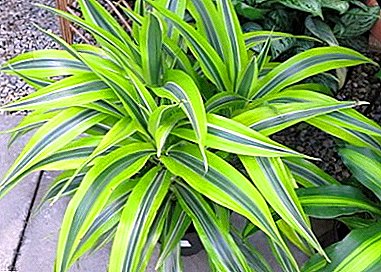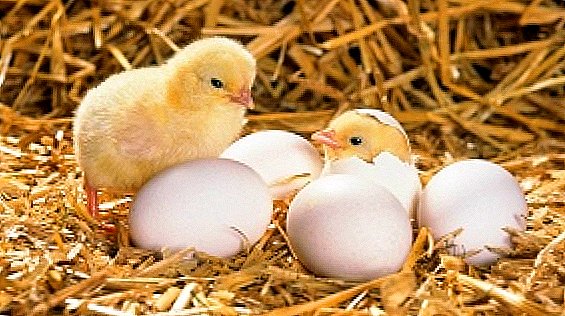
"Gypsy" - an original variety with a purple-blue skin and very tender, delicious pulp, ideal for roasting. Potatoes are sold well, it is used in restaurant or home cooking, grown for themselves and for sale.
In this article you will find comprehensive information about the potato "Gipsy" - a description of the variety, photos and characteristics. You will also get acquainted with the peculiarities of cultivation, find out what diseases can lie in wait for planting and how to protect them from pests.
Potato "Gypsy": description of the variety and photos
| Grade name | Gypsy |
| general characteristics | popular potato folk breeding with purple skin and tender flesh |
| Gestation period | 70-90 days |
| Starch content | 12-14% |
| Mass of commercial tubers | 100-130 gr |
| The number of tubers in the bush | 6-14 |
| Yield | up to 250 kg / ha |
| Consumer quality | excellent taste and high content of microelements |
| Recumbency | 92% |
| Skin color | Violet |
| Pulp color | white or cream, there may be purple streaks |
| Preferred growing regions | zones with continental and temperate climate |
| Disease resistance | resistant to potato crayfish, scab, gray rot |
| Features of growing | requires nutritious soil and constant moisture |
| Originator | breeder name and year of first harvest unknown |
The main characteristics of potato varieties "Gypsy":
- tubers are large, weighing from 100 to 130 g;
- round-oval shape;
- tubers neat, smooth, without bumps and potholes;
- peel bluish-purple, monochromatic, thin, glossy;
- superficial eyes, small, few, unstained;
- the pulp on the cut is white or cream;
- average starch content ranges from 12 to 14%;
- high content of protein, vitamins, iodine, other valuable micronutrients.

Potato variety "Gypsy" refers to the early or medium, depending on the climatic zone. The variety got its name for original purple skin color. Delicate white flesh creates a beautiful contrast and makes the tubers ideal for cooking. Productivity is good, reaching up to 250 centners per hectare.
In the table below we have collected several important characteristics of different varieties of potatoes, so that you can compare them with Gypsy:
| Grade name | Yield (kg / ha) | Stability (%) |
| Gypsy | up to 250 | 92 |
| Santana | 96-168 | 92 |
| Taisiya | 90-160 | 96 |
| Caprice | 90-116 | 97 |
| Blue Danube | 100-200 | 95 |
| Crown | 100-130 | 96 |
| Karatop | 60-100 | 97 |
| Innovator | 120-150 | 95 |
| Gala | 110-140 | 85-90 |
In the table below you will find information about the weight of tubers in other potato varieties:
| Grade name | Commodity mass of tubers (gr) |
| Gypsy | 100-130 |
| League | 90-125 |
| Svitanok Kiev | 90-120 |
| Borovichok | 120-200 |
| Nevsky | 90-130 |
| Lapot | 100-160 |
| Belmondo | 100-125 |
| Gourmet | 90-110 |
| Typhoon | 60-150 |
| Ladoshka | 180-250 |
| Manifesto | 90-150 |
Feature of the variety - very thin and delicate skin. It makes mechanical cleaning difficult harvested tubers when harvested. This reduces the value of the variety for large farms. But on small fields, potatoes grow and gather without problems, delighting farmers and gardeners-amateurs with excellent taste. Intact potatoes are well preserved, do not fade or dry out. Long transport transfers bad.
Read more about the temperature and shelf life, about frequently encountered problems. And also about storage in the winter, in boxes and on the balcony, in the refrigerator and cleaned.
Bushes are not too tall, compact, not spreading. Green mass formation is average. Leaves are medium-sized, dark green, with slightly wavy edges and clearly marked veins. Stems dark, with a bluish tint. Bright blue large flowers are collected in small wreaths, berries are rarely tied. The root system is well developed.

Plants resistant to many dangerous diseases: potato cancer, common scab, gray rot, various viruses: Alternaria, Fusarium, Verticilliasis. Good resistance to late blight. Possible defeat the Colorado potato beetle.
The flesh is tender, delicate, with a rich, not watery taste. The thin, soft skin is rich in iodine and vitamins. White or creamy flesh does not darken during cutting, while cooking potatoes retain a delicate texture, but do not boil soft. Suitable for baking, cooking beautiful side dishes or salads.
Here are some more photos of the potato "Gypsy":



Origin
"Gypsy" is a variety of folk breeding, the prototype for which were the famous Dutch hybrids Black Baron and Blue Danube. The variety is not included in the State Register; potatoes are widely distributed in Russia and Ukraine. Not suitable for industrial cultivation., as it suffers greatly during mechanical cleaning. Most often planted on small farms, as well as in private farms.
Advantages and disadvantages
The main advantages of the variety include:

- high taste of tubers;
- early maturation;
- good yield;
- unusual blue-purple hue;
- resistance to major diseases.
There are practically no flaws in the variety. Feature can be considered demanding of soil nutrition and moderate moisture.
One more problem - too thin peel, which facilitates the cutting of tubers, but excludes the use of a combine when harvesting.
Features of growing
As for agricultural, for planting the largest tubers are not damaged by pests collected from large, healthy bushes. Planting non-commodity stuff greatly reduces yields, potatoes can degenerate.
Before planting, the tubers are pickled, dried, processed by growth promoters. After that, they are laid out into the light for germination. Sprouts appear amicably giving opportunity to plant not whole tubers, but segments with eyes. Root crops are cut with a disinfected knife just before planting.
During the cultivation of potatoes at least 2 times spud, forming high ridges. Dosed irrigation is useful, it significantly improves the yield. It is possible to feed with a mineral complex or organic matter, but not more than 1 time per season.
Read more about how to feed potatoes, when and how to apply fertilizer, how to do it when planting.
Mulching can be used to control weeds.
A week before harvesting, it is recommended to cut off all the tops, this will allow the tubers to gain weight and also to accumulate useful substances. You can't let the potatoes lie in the ground better remove it a little earlier. This approach will help to avoid diseases (for example, late blight).
Diseases and pests
The Gypsy variety is insensitive to many dangerous diseases: potato cancer, common scab, various viruses. It is sufficiently resistant to late blight, rarely affected by gray rot. For prevention, it is necessary to seed the tubers with fungicides before planting and to shed the soil with disinfectant solutions.
It is advisable to change the area for planting once every 2-3 years, this will prevent unpleasant diseases and strengthen plant immunity.
Ideal precursors for potatoes are phacelia, oilseed radish, legumes, or cabbage. These cultures will saturate the soil with useful microelements, prevent the occurrence of infections typical of the nightshade.
Like many varieties with a blue skin, "Gypsy" is often attacked by Colorado beetles or click beetles. The first spoil the tops, the second larvae (wireworms) attack the tubers, making moves and reducing the commercial quality of the roots.
Get rid of insect pests will help preplant tillage, as well as spraying the bushes with insecticides. Possible application non-toxic bio-drugs, they are especially needed during the formation of tubers. It is often recommended to use herbicides and fungicides for better yield.
 As already mentioned, usually a potato planting is threatened by such a common pest as the Colorado potato beetle.
As already mentioned, usually a potato planting is threatened by such a common pest as the Colorado potato beetle.On our site you will find all the necessary information about how to deal with it.
“Gypsy” is an interesting and promising variety that is best grown on farms or in private farms.
With proper care, the tubers will be very beautiful, they will be stored for a long time. Seed material is not subject to degeneration, it can be collected on its own plot from year to year.
On our site you will find a lot of useful information about how to grow potatoes: Dutch technology, under straw, in bags, in barrels, in boxes. And also how to grow early varieties, how to get a good harvest without weeding and hilling.
We also suggest that you familiarize yourself with other varieties of potatoes with different ripening terms:
| Late-ripening | Early maturing | Superstore |
| Nikulinsky | Bellarosa | Farmer |
| Cardinal | Timo | Juvel |
| Slav | Spring | Kiranda |
| Ivan da Marya | Arosa | Veneta |
| Picasso | Impala | Riviera |
| Kiwi | Zorachka | Karatop |
| Rocco | Colette | Minerva | Asterix | Kamensky | Meteor |












